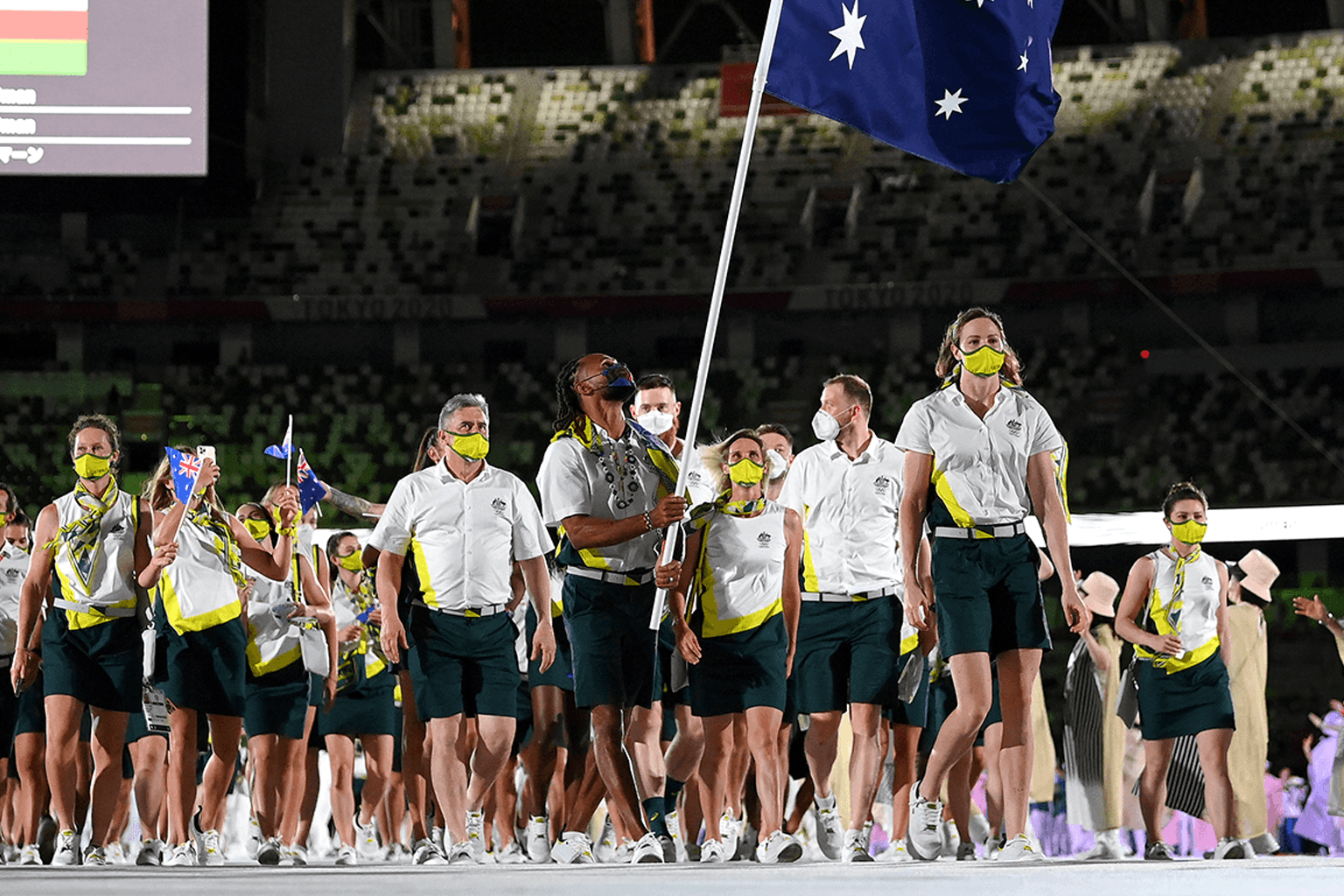13 November 2021
The performances of our Olympic and Paralympic teams in Tokyo look set to leave a lasting legacy and improve the health and wellbeing of Australians.

Findings from Sport Australia’s Community Perceptions Monitor survey reveal more than half of all Australians were inspired by the performance of our athletes - with one in five saying they were now more motivated to get active.
The survey, which captures public attitudes towards sport, found 55 per cent of Australians who watched the Olympics and 58 per cent who watched the Paralympics said they felt proud to be an Australian.
Minister for Sport, Senator the Hon. Richard Colbeck, said it underlined the positive impact the performance of our Olympic and Paralympic athletes had on the nation.
“We have always understood the power of sport to improve our health and reinforce communities,” Minister Colbeck said.
“But the Sport Australia survey showcases the tangible outcomes created as a result of the performances of our sports men and women.”
Participation in organised sport is also expected to benefit with 12 per cent of parents considering enrolling their child or children in a new sport after watching the Games.
While winning medals was identified by Australians as something that made them feel proud, we placed greater value on athletes who showed determination, worked hard and demonstrated good sportsmanship.
The survey also found 82 per cent of people surveyed watched at least some of the 16-day coverage of the Olympics.
And despite having a third of the free-to-air coverage and a 12-day program, the Paralympics proved popular with 68 per cent of survey participants tuning in.
Sport Australia Acting CEO Rob Dalton said the research highlights the pride that Australians have in our athletes and reinforces the important role they play as role models.
“As COVID-19 restrictions ease across the nation and community sport returns, now is the perfect time to get involved in organised sport as a participant, volunteer or official and enjoy the physical, mental and social benefits that sport offers,” Mr Dalton said.
“We know that volunteers remain key to ensuring sporting clubs and organisations can get back on track following the pandemic. For many Australians, community sport provides a first connection to sport and can help develop and unearth our future sporting talent.”
Minister Colbeck said the success of the Tokyo 2020 Games provided a perfect launching pad with a string of major sporting events locked in as we head towards Brisbane 2032.
“The report illustrates the lasting legacy major sporting events can have on generations to come,” Minister Colbeck said.
“We marvelled at the incredible efforts of our Olympians and Paralympians in Tokyo and I can’t wait to see what our athletes achieve next.
“As we look ahead to the 2022 Beijing Winter Games, 2022 Commonwealth Games, 2024 Paris Games and 2032 Brisbane Games there are plenty of opportunities for our athletes to shine and inspire future generations.”
Download the Sport Australia’s Community Perceptions Monitor survey report.
About the Community Perceptions Monitor
The Community Perceptions Monitor (CPM) surveys 500 Australians aged 18+ each month, in a sample that is representative of the population by gender, age and region.
It asks respondents about their attitudes to a range of sport topics and sporting categories. These include high performance categories – athletes at the Olympic, Paralympic and Commonwealth Games, Australian national teams, individual athletes competing internationally and professional codes – as well as casual and local organised sport.
In July and August 2021, the CPM included some questions about interest in and intention to watch or follow the Tokyo Olympic Games (July) and Paralympic Games (August). After each event (in August for the Olympic Games and September for the Paralympic Games) the survey included questions on how much they actually watched and the impact they made. Results in this summary report are based on the full sample of 500 in each month unless otherwise stated.